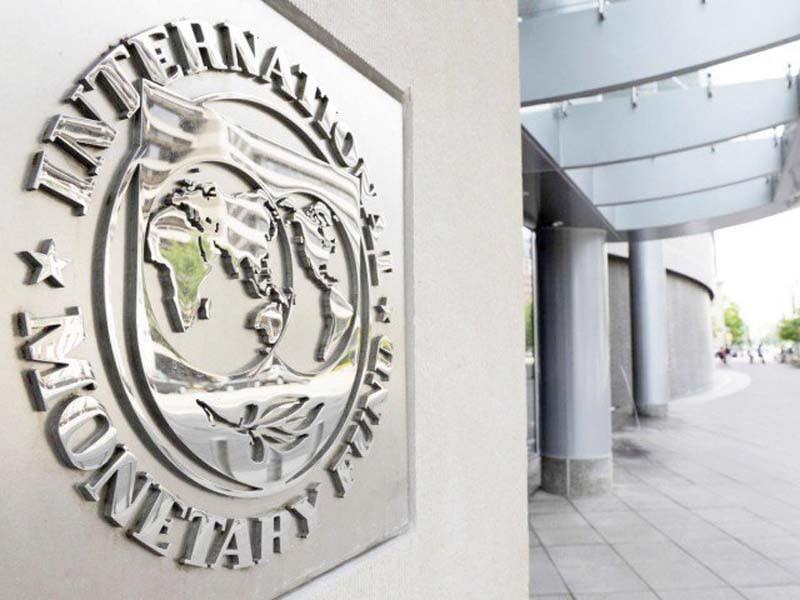Islamabad:
Pakistan showed a reluctance to slap a carbon tax on Monday, which the International Monetary Fund wishes to introduce the government in order to collect funds for the promotion of new energy vehicles within the framework of its resilience conditions within the framework Another ease of loan of $ 1 billion.
The brief discussions on the new carbon tax took place during the kick -off to finalize resilience and sustainable facilities (RSF) – a set of IMF loans which is largely intended to prepare nations vulnerable to climate for disaster management.
Government representatives did not support the carbon sample proposal because of its implications for business growth, depending on those aware of discussions. A detailed session on the carbon levy will take place today (Tuesday), they added.
A IMF team is in the city to finalize a new set of resilience conditions that Pakistan will adopt to qualify and benefit from the climatic loans estimated at $ 1 billion. It will be the 26th Pakistan IMF program, but its objective will be different from traditional rebounds for payments alimony.
Pakistani-IMF discussions take place in the light of the climate and development report of the World Bank country. The World Bank has already identified political gaps, which IMF and Pakistan will try to fill with the adaptation of new policies.
Sources have declared that one of the conditions of resilience could be the imposition of the carbon tax, that lenders want Pakistan will impose on traditional cars based on fossil combustibles – internal combustion engine vehicles.
According to government estimates, 10% of total carbon dioxide emissions come from the transport sector and a passage to cleaner sources of vehicles will require massive funding and efforts.
The Ministry of Industries is finalizing a five -year policy on new energy vehicles (NEV). The initial estimates of the ministry show that Pakistan needs at least 155 billion additional funds until 2030, if it wants to replace combustion engine cars and motorcycles with clean fuel engines.
Oil imported by almost 80% of Pakistan is used in the transport sector and the conversion to cleaner energy vehicles can save exchange reserves.
However, this conversion is quite expensive, which will require grants to reduce the cost of vehicles and promote new infrastructure, including tax derogations and concessions, the sources said.
Traditional two-wheeled motorcycles are up to 100% cheaper than two-wheelers from the new energy. The new three -wheeled energy vehicle will be up to 123% expensive. The plan is that by 2030 up to 90% of the new purchases of two and three wheels should be based on renewable energy sources.
New four -wheel -based four -wheel cars are estimated at 65% compared to combustion engines and the government wants at least 30% of new purchases by 2030 to be based on new technologies, sources said.
The Ministry of Industries plans to propose multiple measures, which include no right of federal excise. battery size.
Income losses should be paid through the new carbon tax. Other measures may include bank financing authorization for NAVs having a value of up to 10 million rupees, compared to 3 million rupees
There is also a proposal for free registration and no tolls on highways for new energy cars, sources said. The government also plans to install around 750 new charging stations until 2030.
World lenders are asking to impose carbon tax on fossil fuel cars to collect funds to finance the new infrastructure for the promotion of clean energy vehicles, sources said.
According to the World Bank, a carbon tax could, from several angles, be beneficial for the development of Pakistan. Pakistan imports almost a third of its energy in the form of oil, coal and natural gas liquefied natural gas (RLNG) at a huge cost, which contributes significantly to the chronic budgetary stress of the country, it He added.
The introduction of a carbon tax would provide a clear signal to companies and households to start adopting efficiency measures and to move the consumption and investment of fossil fuels with renewable energy sources, A-T -It added.
A carbon tax would also expand the tax base by bringing the currently inaccessible producers who operate in the informal economy – estimated between 35 and 50% – in the tax net at a low administrative cost, said the World Bank report .
The use of traditional tax instruments is more difficult in such contexts. A carbon tax at large would bypass this and could be relatively easy to implement, administratively and politically, if it is gradually introduced, with adequate revenue recycling to protect the poor and to support an expansion of shared prosperity.
About 51 manufacturers of different types of transport vehicles have obtained licenses and government incentives can help establish the infrastructure. The government also plans to introduce national standards for vehicle emissions to promote more effective more effective vehicles.
The Ministry of Energy informed the IMF on the measures it had taken to promote the new infrastructure. However, the government has not yet made its last spirit on the issue of carbon tax, sources said.
Any commitment to the IMF on the levy of the new tax will be given after the consent of Prime Minister Shehbaz Sharif, government officials said. They said that a clear image in this regard would emerge by the end of this week.
The new installation of the IMF will also aim for the gradual elimination of the subsidy to the electric tube well, the progressive screening of the natural gas subsidy for the production of fertilizers, the implementation of reforms in the sugar sector such as the ‘Elimination of entry barriers such as license restrictions on new sugar factories and import rights and export subsidies for sugar, according to sources.




